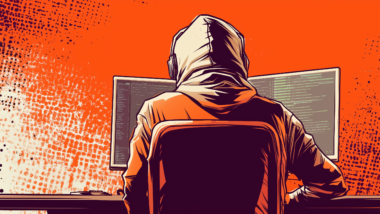Vor einigen Tagen fiel mir die Wochenend-Ausgabe der International Herald Tribune in die Hände, wo auf Seite 6 ein ausführlicher Artikel über Copyright und Digitale Kultur und ihre Freiheiten spricht: „Imagine a world without copyright“ ist eine verkürzte Version dieses Essays von Joost Smiers und Marieke van Schijndel mit dem gleichen Titel (pdf hier). Die Industrie wird dabei ganz treffend als Willkürherrscher dargestellt, gegen den auch Millionäre machtlos sind. Gegen die bösen Folgen wendet sich der Entwurf.
Nach einer knappen Einführung in die bösen Folgen der Privatisierung und die Beschneidung der demokratischen Rechte künstlerischen und kulturellen Austausches fragen die Autoren:
It is also unacceptable that we have to consume cultural creations in exactly the way they are dished to us, and that we may change neither title nor detail. We thus have every reason to ponder about a viable alternative to copyright.
At the same time, a fascinating development is taking place before our very eyes. Millions of people exchanging music and movies over the Internet refuse to accept any longer that a mega-sized company can actually own, dor example, millions of meodies. Digitalization is gnawing away at the very foundations of the copyright system.
What might an alternative idea of copyright look like? To arrive at that alternative, we first have to acknowledge that artists are entrepreneurs. They take the initiative to craft a given work and offer it to a market. Others can also take that initiative, for example a producer or patron who in turn employs artists. All of these artistic initators have one thing in common: They take entrepreneurial risks.
What copyrights do is precisely to limit those risks. The cultural entrepreneur receives the right to erect a protective barrier around his or her work, notably a monopoly to exploit the work for a seemingly endless period of time. That protection also covers anything that resembles the work in one way or another. That is bizarre.
Etwas bizarr ist auch die Logik, nach der alle und jegliche Schaffenskraft unternehmerisch ausgerichtet ist. Dennoch hab ich sofort an die Creative Commons gedacht, die es zu bedenken gäbe. Aber nein. Beide Autoren übersehen in der kurzen Version des Textes, dass es eine Alternative bereits gibt, nämlich die Creative Commons, und dass diese sehr wohl eine auf dem copyright aufbauende Alternative darstellen. Ganz ohne Copyright wäre ja durchaus eine Möglichkeit, die radikaler gedacht ist als üblich – das Buch „Arts under Pressure“ von Smiers macht dies klar. Das wäre ein Weg, der nicht „systematisch immanent“ funktionieren würde, wie es Rainer Kuhlen und Jochen Brüning in ihrem Papier „Creative Commons (CC) – für informationelle Selbstbestimmung, gegen den Trend des Urheberrechts/Copyright als Handelsrecht; oder: Chancen für einen innovativen Drei-Stufen-Test?“ (2004) festhalten (html hier). Die Revolution kann auch sanfter vonstatten gehen, und dennoch die Statuen der Kulturindustrie umwerfen.
More often, however, the author opts for the choice „some rights reserved“, for example that the usage of a work is restricted to not for profit activities. It is an uncertain form of contract law that will keep lawyers busy. The sympathetic aspect of Creative Commons-like constructions is that it becomes possible, to a certain extent, to withdraw oneself from the copyright jungle. It is of course always laudable to start a new world order on an island, and there is no scepticism in this statement. We hope that more and more artists will renounce the system of copyright that disadvantages them so badly, and begin hollowing it out by embracing the idea of a Creative Commons. Without any doubt this systems is helpful for museums and archives that wish to spread their stocks of cultural heritage to the public but also like to avoid it becoming copyrighted or used inappropriately by others.
In der Zeitungsversion fällt das leider unter den Tisch. Copyright darf als Handelsrecht ausgelegt werden, finde ich, auch Smiers und van Schijndel bemerken das in der langen Fassung:
Certain artistic expression, however, demands sizeable initial investments. This is the second situation for which we must find a solution. Think about movies or novels. We propose that the risk bearer – the artist, the producer or the patron – receive for works of this kind a one-year usufruct, or right to profit from the works
So radikal auf zu schützende Investitionen gemünzt klingt das wie eine härtere und ziemlich emanzipationsfreie Version der non-commercial Lizenz, was rechtlich sicherlich schwierig durchzusetzen wäre. Der Sonny Bono Copyright Act ist ja faktisch bereits über den großen Teich geschwappt. Aber: erst einmal könnte eine angemessende Entschädigung für den Arbeitsaufwand auch über ein soziales Ernstnehmen der „Kosumenten“ geschehen statt z.B. über eine statische Rechteänderung je nach Alter des Werks. Realistisch interessant in diesem Zusammenhang sind aber wohl doch eher die CC, dazu Micropayment und eine selbstverpflichtende Ethik, die so kulturelle us-amerikanische Koller wie implizite „Genehmigungspflicht für Happy Birthday-Singen“ moralisch verhindert, statt nur willkürlich und scheinbar großzügig zu gewähren. Schade vor allem, dass die Textversion für die Zeitung so ganz ohne Creative Commons auszukommen versucht.
Der ursprüngliche lange Artikel war wohl bei rekombinant.org untergebracht, der Server läuft aber derzeit auf Sparflamme.




0 Ergänzungen
Dieser Artikel ist älter als ein Jahr, daher sind die Ergänzungen geschlossen.